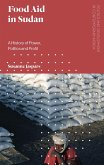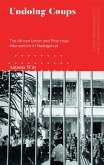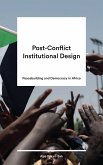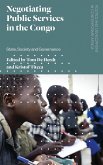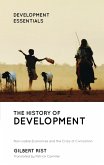Shortlisted for the Fage and Oliver Prize 2018
In 2013, the Central African Republic was engulfed by violence. In the face of the rapid spread of the conflict, journalists, politicians, and academics alike have struggled to account for its origins.
In this first comprehensive account of the country's recent upheaval, Louisa Lombard shows the limits of the superficial explanations offered thus far - that the violence has been due to a religious divide, or politicians' manipulations, or profiteering. Instead, she shows that conflict has long been useful to Central African politics, a tendency that has been exacerbated by the international community's method of engagement with so-called fragile states. Furthermore, changing this state of affairs will require rethinking the relationships of all those present - rebel groups and politicians, as well as international interveners and diplomats.
State of Rebellion is an urgent insight into this little-understood country and the problems with peacebuilding more broadly.
Hinweis: Dieser Artikel kann nur an eine deutsche Lieferadresse ausgeliefert werden.
In 2013, the Central African Republic was engulfed by violence. In the face of the rapid spread of the conflict, journalists, politicians, and academics alike have struggled to account for its origins.
In this first comprehensive account of the country's recent upheaval, Louisa Lombard shows the limits of the superficial explanations offered thus far - that the violence has been due to a religious divide, or politicians' manipulations, or profiteering. Instead, she shows that conflict has long been useful to Central African politics, a tendency that has been exacerbated by the international community's method of engagement with so-called fragile states. Furthermore, changing this state of affairs will require rethinking the relationships of all those present - rebel groups and politicians, as well as international interveners and diplomats.
State of Rebellion is an urgent insight into this little-understood country and the problems with peacebuilding more broadly.
Hinweis: Dieser Artikel kann nur an eine deutsche Lieferadresse ausgeliefert werden.



